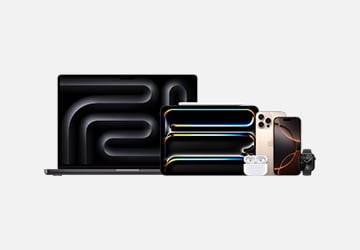This article was originally published by Business Post on 7th November 2021.
Just as streaming services have disrupted how audio and video is consumed, the device as a service model has transformed how businesses procure IT.
In the 1980s, pure play software companies thrived, seeming to show that the real money was in bits, not atoms. After all, software could not be commodified to the same degree as hardware, and as manufacturer after manufacturer, and even entire segments such as minicomputers, fell by the wayside it seemed the smart money was in software.
Today, the picture looks a little different: our internet-centric world is transforming not only software, but even hardware itself into a service. Apple, always as much a hardware as a software company, has undeniably changed how people view personal technology while Microsoft, long the purest of pure play software houses, also develops a range of hardware, from tablets to games consoles.
The smartphone and tablet markets are among the hottest, a cross between a technological arms race and a fashion parade, with new devices and even new manufacturers – even Google is getting in on the hardware game – vying to be the most productive, the most stylish, or both.
In some senses it is not a surprise: as computational power grows and the network effect kicks in, personal devices such as smartphones and laptops have become an essential part of life. As a result, they are desirable objects in which people want to see their personalities reflected.
The problem for business, then, is in keeping up. Every year devices get better, faster and slimmer. While missing one upgrade cycle may not matter, over time the expectation of growing processing power and storage means older devices are left behind by essential internet and cloud services. At the same time, managing devices has become an ever more complex and specialist task, and the risks posed to corporate networks by mismanaged and unmanaged devices have grown exponentially.
The answer many businesses have settled on is device as a service (DaaS), which allows them to get the right devices into the hands of staff.
Indeed, the DaaS market has grown enormously in recent years. Figures from analysts Grand View Research said market size was valued at $30.75 billion (€27.04 billion) in 2020 and was expected to grow annually by 37.8 per cent from 2021 to 2028.
Alan Lanigan, Apple Business Manager at IT procurement, service and digital transformation specialists Presidio, said there was nothing new in businesses getting their hardware from external suppliers, but that DaaS was an added value proposition.
“Leasing has always been around, but businesses are looking at how to wrap-in other services,” he said.
According to Lanigan, security – something on the mind of every business in light of recent breaches – is among the factors driving adoption of the model. But it’s not the only one.
“Security is definitely one of the pillars, but there are others too, such as affordability management, support and logistics.”
By moving to DaaS for laptops and smartphones and other mobile devices, businesses can control costs, by ensuring better predictability of spending and driving costs down.
“End-user devices can be expensive and large capex outlays are common. Moving to an opex model can bring a real change,” said Lanigan.
This ability to predict and control goes beyond costs, and right down to the device itself. Supply chains, an issue few thought would ever dominate public discourse, have now been made visible and visibly fragile to all, with knock-on consequences for everyone. Still in a state of flux to this day, supply chains were laid waste in March 2020, starting with a manufacturing shutdown and a near hiatus of shipping. Businesses rushing to implement work-from-home (WFH) policies found laptops were in short supply as retailers had replaced traditional warehousing with just-in-time (JIT) delivery and little new stock was expected.
DaaS combats this, as service providers keep inventory and have close relationships with manufacturers. As a result, those who had DaaS contracts found themselves at an advantage, said Lanigan.
“The pandemic, having forced people to work from home, meant devices needed to be not only shipped quickly out to people’s homes, but also set up in such a way that they can be productive and safe and secure.”
Naturally, a relationship between a DaaS provider and business is not just about sales. Instead, it is a consultative process, starting with working out what businesses’ software and hardware requirements are and then configuring the devices to work from day one.
“We stage the devices, install SIM cards, install applications and even screen protectors. When the user switches the device on, it’s important that it works immediately. We work with device partners to configure and meet policies on the device when it’s switched on, and that allows us to have a zero-touch approach. That’s a big help to internal IT teams,” said Lanigan.
The devices themselves run the gamut: as well as being an Apple authorised enterprise reseller, Presidio supplies hardware from manufacturers including Microsoft, HP, Dell, VMware and Cisco.
In light of the pandemic, and the government’s recent call for a return to remote working, this ability to hit the ground running with any device at any time can mean the difference between business continuity and breakdown.
Managing devices only becomes more important as businesses scale.
“With the pandemic, you had very large organisations which had thousands of employees across multiple geographies. They needed to get existing devices out to people and also had new employees joining needing devices to get them up and running,” he said.
Once devices are in place, Presidio provides level one and level two support. In addition to that, it can also provide managed services.
“If an organisation, for example, wants to roll out a new application to all of their end users, we can do that for them,” said Lanigan.
This consultative approach of working with the customer pays dividends: the pandemic has accelerated business strategies and organisations understand the importance of device deployment and management, taking advantage of a range of services including warranties, support, device management, white glove service and asset tagging.
“Financial solutions have always been around but we’re seeing clients wanting to wrap-in more services; it’s not just about the device,” said Lanigan.
“It’s all about a great end-user experience. You don’t want to have senior directors stuck in the weeds managing user problems.”
Want to find out more about how Presidio can help you with your journey to DaaS? Get in touch!







